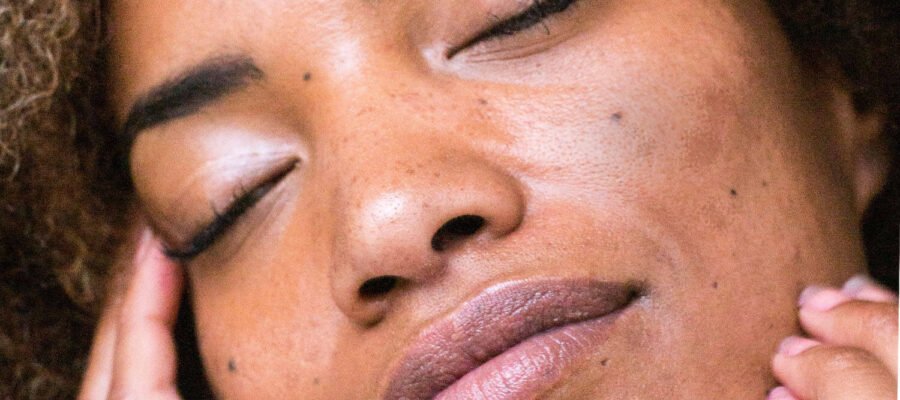Table of Contents

How to remove body odor
Dealing with body odor is a common concern for many individuals, and it can be an uncomfortable and embarrassing issue to address. Body odor occurs when sweat interacts with bacteria on the skin’s surface, leading to an unpleasant smell. However, there are several effective strategies to manage and reduce body odor, ranging from simple hygiene practices to lifestyle adjustments. In this guide, we will explore these methods in detail, helping you understand how to combat body odor and regain confidence in your personal hygiene. Whether you’re looking for quick fixes or long-term solutions, this comprehensive guide will provide you with the information you need to effectively tackle body odor and stay fresh throughout the day.
Why body odor occurs
Why body odor occurs
Body odor primarily occurs due to the interaction between sweat and bacteria on the skin’s surface. Here’s why it happens:
- Sweating: Sweating is a natural and essential bodily function. It helps regulate body temperature by cooling the skin as sweat evaporates. Sweat is mostly composed of water, but it also contains small amounts of salt and other compounds.
- Bacterial Interaction: The human skin is home to a diverse community of bacteria, known as the skin microbiota. When you sweat, the moisture creates an environment where bacteria can thrive, especially in areas with more sweat glands, such as the armpits and groin.
- Bacterial Breakdown: Bacteria on the skin feed on the components of sweat, breaking them down into various byproducts. These byproducts can include fatty acids and ammonia.
- Odor Formation: The breakdown of sweat by bacteria produces volatile organic compounds (VOCs), including those mentioned above. These VOCs are responsible for the distinctive odor associated with body odor.
- Hormonal Factors: Hormones can also play a role in body odor. For example, during puberty, the body produces more sweat and sebum (skin oil), which can create a more favorable environment for odor-producing bacteria.
- Diet and Medications: Certain foods, such as garlic and onions, contain sulfur compounds that can be excreted in sweat and contribute to body odor. Some medications may also affect body odor as a side effect.
- Health Conditions: In some cases, underlying medical conditions, such as hyperhidrosis (excessive sweating) or certain infections, can lead to more severe or unusual body odors.
It’s important to note that body odor is a natural and common occurrence. It varies from person to person due to factors like genetics, diet, and lifestyle. While it can be managed and reduced through good hygiene practices and lifestyle changes, it’s unlikely to be entirely eliminated. Most people can effectively control body odor with proper hygiene and the use of products like deodorants and antiperspirants. If you have concerns about persistent or severe body odor, it’s advisable to consult a healthcare professional for evaluation and guidance.
also readHow to get rid of facial hair | 10 effective remedies
Remove body odor in 13 tips
Remove body odor in 13 tips
Removing body odor involves good hygiene practices and lifestyle changes. Here are some steps to help you effectively manage and reduce body odor:
- Regular Bathing: Shower or bathe daily using warm water and a mild soap. Pay special attention to areas prone to sweat and odor, such as the armpits, groin, and feet.
- Antibacterial Soap: Use an antibacterial soap to help kill odor-causing bacteria on your skin. However, avoid using harsh soaps that can strip your skin of its natural oils.
- Use Antiperspirant or Deodorant: Apply antiperspirant or deodorant to your underarms. Antiperspirants can help reduce sweating, while deodorants mask odor and may have antibacterial properties. Consider using products with aluminum compounds for better sweat control.
- Keep Your Underarms Dry: Make sure your underarms are completely dry before applying deodorant or antiperspirant. Excess moisture can create a breeding ground for bacteria.
- Wear Breathable Fabrics: Choose natural, breathable fabrics like cotton, linen, or wool, which allow your skin to breathe and reduce sweating. Avoid synthetic materials like polyester, which can trap moisture.
- Change Clothes Regularly: Change your clothes daily, especially if you sweat a lot. Wearing the same clothes multiple times can trap odors.
- Practice Good Foot Hygiene: Wash your feet daily, dry them thoroughly, and use foot powder or antiperspirant to keep them dry. Wear clean socks made of natural materials and change them daily.
- Trim Body Hair: Excess body hair can trap sweat and odor. Trimming or shaving hair in areas where you sweat heavily can help reduce odor.
- Dietary Considerations: Certain foods like garlic, onions, and spices can contribute to body odor. Consider reducing your consumption of these foods. Drinking plenty of water can also help dilute sweat and reduce odor.
- Manage Stress: Stress can lead to increased sweating and body odor. Practice stress-reduction techniques such as meditation, yoga, or deep breathing exercises.
- Regular Exercise: Regular physical activity can help your body regulate its temperature and sweat more efficiently. Shower after exercising and change into clean clothes to prevent post-workout body odor.
- Use Fragrance Sparingly: While perfumes or colognes can mask body odor temporarily, avoid overusing them, as heavy fragrances can sometimes make the problem worse.
- Medical Consultation: If you continue to experience excessive body odor despite good hygiene practices, consult a healthcare professional. It could be a sign of an underlying medical condition like hyperhidrosis or an infection.
Remember that body odor is a natural part of being human, and everyone has their unique scent. While you can take steps to reduce and manage body odor, it may not be entirely eliminated. Developing a consistent hygiene routine and making healthy lifestyle choices can go a long way in keeping body odor at bay.
How to remove body odor permanently
How to remove body odor permanently
Removing body odor permanently is a challenging task because it is a natural part of being human and is influenced by various factors, including genetics, diet, and lifestyle. However, you can take steps to significantly reduce and manage body odor effectively. Here are some strategies that may help:
- Maintain Good Hygiene:
- Shower or bathe daily using a mild soap to remove sweat and bacteria from your skin.
- Pay special attention to areas prone to sweating, such as the armpits, groin, and feet.
- Use an antibacterial soap or cleanser to kill odor-causing bacteria.
- Use Antiperspirants or Deodorants:
- Antiperspirants can help reduce sweating by blocking sweat ducts.
- Deodorants mask odor and may have antibacterial properties.
- Consider using clinical-strength or prescription-strength products if regular options are not effective.
- Clothing and Fabrics:
- Choose natural, breathable fabrics like cotton, linen, or wool, which allow your skin to breathe.
- Avoid synthetic materials like polyester, which can trap moisture and contribute to odor.
- Change your clothes regularly, especially if you sweat a lot.
- Proper Foot Care:
- Wash your feet daily, dry them thoroughly, and use foot powder or antiperspirant to keep them dry.
- Wear clean, moisture-wicking socks made of natural materials and change them daily.
- Hair Removal:
- Trimming or shaving body hair in areas prone to sweating can reduce the retention of sweat and odor.
- Dietary Adjustments:
- Limit or avoid foods known to contribute to body odor, such as garlic, onions, and spicy foods.
- Stay hydrated by drinking plenty of water to dilute sweat and reduce odor.
- Stress Management:
- High-stress levels can lead to increased sweating and body odor. Practice stress-reduction techniques such as meditation, yoga, or deep breathing exercises.
- Medical Evaluation:
- If you continue to experience excessive body odor despite good hygiene practices, consult a healthcare professional. There may be an underlying medical condition, such as hyperhidrosis, that requires treatment.
- Surgery or Medical Treatments:
- In extreme cases of excessive sweating, medical treatments like Botox injections or surgical procedures may be considered. These options should be discussed with a healthcare professional.
It’s important to remember that body odor is a natural part of human physiology, and it may not be entirely eliminated. However, with consistent hygiene practices and lifestyle adjustments, you can effectively manage and reduce body odor, making it less noticeable. Tailor your approach to your specific needs and preferences, and consult a healthcare professional if you have concerns about persistent or severe body odor.
Natural remedies for body odor in child
Natural remedies for body odor in child
Managing body odor in children can be approached naturally and gently. It’s important to remember that children’s bodies are still developing, and excessive body odor can sometimes be a temporary phase due to hormonal changes. Here are some natural remedies and preventive measures to help manage body odor in children:
- Regular Bathing: Ensure your child bathes or showers regularly with a mild, fragrance-free soap. Encourage them to clean areas prone to sweating, such as the armpits, groin, and feet.
- Use Baking Soda: Baking soda is a natural deodorizer. Sprinkle a small amount of baking soda on a damp washcloth and have your child use it to gently scrub their underarms. Rinse thoroughly.
- Natural Deodorants: Consider using natural and aluminum-free deodorants designed for children. Look for products with natural ingredients like aloe vera, chamomile, or witch hazel.
- Change Clothes Regularly: Ensure your child changes their clothes daily, especially if they are active and sweat during the day.
- Breathable Fabrics: Dress your child in breathable, natural fabrics like cotton to help wick away sweat and keep them comfortable.
- Foot Care: Teach your child to wash and dry their feet thoroughly, especially between the toes, and encourage them to wear moisture-wicking socks and breathable shoes.
- Dietary Considerations: Pay attention to your child’s diet. Limit or avoid foods that may contribute to body odor, such as heavily spiced or garlic-rich foods.
- Hydration: Make sure your child stays well-hydrated by drinking plenty of water. Proper hydration can help dilute sweat and reduce odor.
- Teach Good Hygiene Habits: Educate your child about the importance of good hygiene and teach them how to properly wash and care for their body.
- Stress Reduction: Help your child manage stress through relaxation techniques like deep breathing exercises, yoga, or mindfulness.
- Consult a Pediatrician: If your child’s body odor persists or worsens despite these natural remedies, consider consulting a pediatrician. It’s important to rule out any underlying medical conditions or hormonal issues.
Remember that body odor is a normal part of growing up, and children go through various developmental stages that can affect their scent. Be patient and understanding with your child, and focus on teaching them good hygiene habits that will serve them well as they continue to mature.
Underarms smell remover home remedies
Underarms smell remover home remedies
There are several home remedies that can help remove or reduce underarm odor. These remedies often work by killing odor-causing bacteria and neutralizing the smell. Keep in mind that individual results may vary, and it may take some trial and error to find the remedy that works best for you. Here are some home remedies to try:
- Lemon Juice:
- Lemon juice has natural antibacterial and acidic properties that can help kill odor-causing bacteria.
- Apply freshly squeezed lemon juice to your underarms and let it dry before rinsing it off. Be cautious if you have sensitive skin, as lemon juice can be irritating.
- Apple Cider Vinegar:
- Apple cider vinegar can help balance the skin’s pH and kill bacteria.
- Mix equal parts of apple cider vinegar and water and apply it to your underarms. Allow it to dry before rinsing.
- Baking Soda:
- Baking soda is an effective natural deodorizer that can help absorb moisture and neutralize odors.
- Make a paste by mixing baking soda with water and apply it to your underarms. Leave it on for a few minutes before rinsing.
- Coconut Oil:
- Coconut oil has antibacterial properties and can help moisturize the skin.
- Apply a small amount of coconut oil to your underarms and allow it to absorb into the skin.
- Tea Tree Oil:
- Tea tree oil has antimicrobial properties that can help combat odor-causing bacteria.
- Dilute a few drops of tea tree oil with water and apply it to your underarms. Be cautious, as tea tree oil can be strong and may cause irritation in some individuals.
- Witch Hazel:
- Witch hazel is a natural astringent and can help control sweating and kill bacteria.
- Apply witch hazel to your underarms using a cotton ball and allow it to dry.
- Cornstarch or Arrowroot Powder:
- These powders can help absorb moisture and reduce odor.
- Dust a small amount of cornstarch or arrowroot powder onto your underarms.
- Hydrogen Peroxide:
- Hydrogen peroxide can help kill bacteria and lighten underarm skin.
- Apply a diluted solution of hydrogen peroxide (mix with water) to your underarms and allow it to dry before rinsing.
- Aloe Vera Gel:
- Aloe vera has soothing and antibacterial properties.
- Apply fresh aloe vera gel to your underarms and allow it to dry.
- Epsom Salt Bath:
- Soaking in an Epsom salt bath can help detoxify the body and reduce body odor.
- Add Epsom salt to your bathwater and soak for 15-20 minutes.
Remember to perform a patch test before using any of these remedies, especially if you have sensitive skin. If you experience irritation or an allergic reaction, discontinue use. Additionally, maintaining good hygiene practices, such as regular bathing and using antiperspirants or deodorants, is essential in managing underarm odor.
Conclusion
In conclusion, body odor is a natural and common occurrence that results from the interaction between sweat and bacteria on the skin’s surface. While it may not be entirely eliminated, it can be effectively managed and reduced through a combination of good hygiene practices and lifestyle adjustments. Key takeaways for addressing body odor include:
- Hygiene Matters: Regular bathing with a mild soap, paying attention to sweat-prone areas, and using antibacterial cleansers can help maintain clean skin and reduce odor.
- Deodorants and Antiperspirants: Using deodorants and antiperspirants, especially those with antibacterial properties, can help control odor and reduce sweating.
- Clothing Choices: Opt for breathable, natural fabrics like cotton and change clothes regularly, especially if you sweat heavily.
- Foot Care: Proper foot hygiene, including washing, drying, and using foot powder, can help prevent foot odor.
- Diet and Hydration: Be mindful of foods that can contribute to body odor and stay hydrated to dilute sweat and reduce odor.
- Stress Management: High-stress levels can lead to increased sweating and odor. Practicing stress-reduction techniques can be helpful.
- Consult a Professional: If body odor persists or worsens despite these measures, consult a healthcare professional to rule out underlying medical conditions or receive additional guidance.
Ultimately, body odor is a natural part of being human, and while it can be managed, it’s important not to be overly self-conscious about it. Developing a consistent hygiene routine and making healthy lifestyle choices can go a long way in keeping body odor under control, allowing you to feel confident and comfortable in your daily life.
FAQs
Here are some frequently asked questions (FAQs) about body odor, along with their answers:
1. What causes body odor?
- Body odor is primarily caused by the interaction between sweat and bacteria on the skin’s surface. When sweat mixes with the bacteria present on the skin, it can produce an unpleasant odor.
2. Is body odor normal?
- Yes, body odor is a normal and natural part of being human. Everyone has their own unique scent, and some people may naturally produce more body odor than others.
3. Can certain foods affect body odor?
- Yes, certain foods, such as garlic, onions, and spices, can contribute to body odor because the compounds in these foods can be excreted in sweat.
4. Are there any medical conditions associated with excessive body odor?
- Yes, excessive body odor can sometimes be associated with medical conditions like hyperhidrosis (excessive sweating), diabetes, liver or kidney disease, and certain genetic disorders. If you’re concerned about persistent or severe body odor, it’s a good idea to consult a healthcare professional.
5. How can I reduce underarm odor naturally?
- Natural remedies to reduce underarm odor include using lemon juice, apple cider vinegar, baking soda, coconut oil, and witch hazel. These substances can help kill odor-causing bacteria and neutralize odors.
6. What’s the difference between deodorants and antiperspirants?
- Deodorants help mask body odor by using fragrances and sometimes antibacterial agents. Antiperspirants, on the other hand, contain ingredients like aluminum compounds that block sweat glands, reducing sweating and, subsequently, body odor.
7. Can stress affect body odor?
- Yes, stress can increase sweating, and excessive sweating can lead to increased body odor. Managing stress through relaxation techniques may help reduce body odor in some cases.
8. Is it possible to remove body odor permanently?
- Completely eliminating body odor is challenging because it’s a natural part of human physiology. However, it can be effectively managed and reduced through good hygiene practices, lifestyle adjustments, and the use of appropriate products.
9. Can children experience body odor?
- Yes, children can experience body odor, especially during puberty when hormonal changes can lead to increased sweating and body odor. Teaching children good hygiene habits can help manage this.
10. When should I see a doctor about body odor? –
If you have concerns about persistent or severe body odor that is not responsive to home remedies and hygiene practices, or if you suspect an underlying medical condition, it’s advisable to consult a healthcare professional for evaluation and guidance.
https://en.wikipedia.org/wiki/Body_odor
also readHow to get rid of Facial Freckles 7 Natural Treatment






